Introduction
Why Do People Raise Pigeons: The practice of raising pigeons is a timeless pursuit that transcends cultural, geographical, and historical boundaries. For centuries, people have found myriad reasons to engage in the intricate art of pigeon keeping, turning it into a multifaceted endeavor that encompasses hobbies, competitions, and even historical traditions. The allure of raising pigeons lies not only in the captivating beauty and diversity of pigeon breeds but also in the myriad purposes they serve for enthusiasts around the world. From the exhilarating world of pigeon racing to the serene contemplation of pigeons as symbols of peace, the motivations behind why people raise pigeons are as diverse and rich as the activity itself.
At the heart of pigeon keeping lies a deep-seated passion for avian companionship and the joy of witnessing the unique behaviors and characteristics of these remarkable birds. Whether it’s the intricate breeding practices that lead to stunning color variations or the proud exhibition of show pigeons in competitive events, the world of pigeon fanciers is one of dedication and appreciation for the nuances of avian life. Pigeon racing, a time-honored tradition, adds an element of excitement and camaraderie as enthusiasts test the homing instincts of their feathered companions, turning the skies into a canvas for exhilarating competitions.
Beyond the realm of hobbies and competitions, the historical and cultural dimensions of pigeon keeping are equally compelling. Pigeons, once revered as messengers and symbols of peace, carry a profound significance in various cultures and religions. From ancient civilizations to contemporary urban landscapes, the presence of pigeons in human lives has evolved, yet the fascination with these birds endures. In this exploration of why people raise lifespan pigeons, we delve into the diverse tapestry of motivations that drive individuals to welcome these feathered companions into their lives, creating a mosaic that reflects the deep connection between humans and pigeons across time and space.

Why are people raising pigeons?
Pigeon breeders have developed pigeons with a wide variety of different characteristics. Some have been selected for meat production, some for athletic endeavors, and others for their plumage.
People raise pigeons for various reasons, and the motivations can vary based on individual interests, cultural practices, and practical purposes. Here are some common reasons why people raise pigeons:
Hobby and Recreation: Many people raise pigeons as a hobby. Pigeon breeding and keeping can be a fulfilling and enjoyable pastime, offering opportunities to observe the birds’ behaviors, learn about different breeds, and engage in activities such as pigeon racing or showing.
Competition and Shows: Pigeon fanciers often participate in competitions and shows where the birds are judged based on various criteria such as breed standards, color patterns, and overall health. These events provide a platform for enthusiasts to showcase their pigeons and engage with other members of the pigeon fancy community.
Pigeon Racing: Homing pigeons, a specific breed trained for racing, are raised for the sport of pigeon racing. In this activity, pigeons are released from a specific location, and their ability to find their way back to their home loft is timed and recorded. Pigeon racing has a long history and remains popular in some regions.
Messenger Pigeons: While not as prevalent today, there are instances where people raise pigeons for historical or symbolic purposes, such as recreating the use of messenger pigeons. In the past, pigeons were employed for message delivery, particularly during wartime.
Education and Research: Pigeons are used in educational settings for teaching purposes. Some institutions keep pigeons for research purposes, studying aspects of their behavior, cognition, and physiology.
Cultural and Religious Significance: In certain cultures and religions, pigeons hold symbolic or religious significance. For example, in some traditions, the release of pigeons is seen as a symbol of peace or spiritual expression.
Pest Control: In some cases, people may keep pigeons as a form of natural pest control. Pigeons can be trained to discourage other birds or pests from certain areas.
Meat Production: While less common in many Western countries, pigeons are raised for meat in some cultures. Squab, the meat of young pigeons, is considered a delicacy in various cuisines.
Is it good to raise pigeons?
Pigeons are smart, easy going birds that quickly learn household routines. They do fine in homes with other pets and can live peacefully and unafraid with dogs and cats as long as they are kept safe. Pigeons are very emotional and do need a BFF, whether another bird or a human with whom they can spend the day.
Raising pigeons can be a rewarding experience for individuals who have an interest in birds and are willing to provide proper care for them. Here are some factors to consider when deciding whether raising pigeons is a good idea for you:
Pros of Raising Pigeons:
Fascinating Behavior: Pigeons exhibit interesting and often intelligent behaviors. Raising them allows you to observe their natural instincts, courtship rituals, and parenting behaviors.
Homing Abilities: Some pigeon breeds, like homing pigeons, are known for their impressive homing instincts. Training and raising homing pigeons can be a unique and enjoyable hobby.
Educational Opportunities: Raising pigeons can be an educational experience, particularly for children. It provides insights into avian biology, care, and the responsibilities of pet ownership.
Companionship: Pigeons can become accustomed to human presence and may form bonds with their caregivers. While their interactions may not be as demonstrative as those of some mammals, some people find joy in the companionship pigeons can offer.
Breeding and Genetics: Breeding pigeons allows enthusiasts to explore the genetics of different pigeon breeds, including color patterns, feather types, and other traits.
Cons and Considerations:
Time and Commitment: Raising pigeons requires time and commitment. Daily care, feeding, and monitoring are essential to ensure their well-being.
Space Requirements: Pigeons need adequate space for flying and exercise. Consider whether you have sufficient space for an aviary or loft.
Regulatory Considerations: Check local regulations and zoning laws before raising pigeons, as some areas may have restrictions on keeping certain types of birds.
Potential Health Risks: Pigeons, like all birds, can carry diseases. Proper hygiene and care practices are necessary to minimize health risks for both the pigeons and their caregivers.
Socialization: Pigeons are social birds and may not thrive in isolation. Consider keeping more than one pigeon to fulfill their social needs.
What is the benefit of having pigeons?
New evidence shows that pigeons have been domesticated for more than twelve millennia. Pigeons save lives. To this day, pigeons deliver life saving medications and provide valuable messenger service in remote areas, as they have for thousands of years.
While pigeons can sometimes be considered a nuisance, there are also potential benefits associated with their presence. Here are a few positive aspects:
Urban Wildlife: Pigeons are a part of urban wildlife and contribute to the biodiversity of urban ecosystems. Their adaptability allows them to thrive in diverse environments, including cities.
Seed Dispersal: Pigeons eat a variety of seeds, and their droppings can serve as a natural fertilizer. In some cases, they may play a role in seed dispersal, contributing to the growth of plants in urban areas.
Pest Control: Pigeons feed on insects and small invertebrates. In urban environments, they may help control pest populations, contributing to a natural form of pest management.
Educational Opportunities: Pigeons can serve as educational subjects for birdwatchers, students, and researchers. Studying their behavior, communication, and adaptability can provide insights into avian biology and ecology.
Companionship: For some people, particularly in urban settings, the presence of pigeons can offer a sense of companionship and connection to nature. Observing birds in daily life can bring a touch of the natural world to urban environments.
Cultural Significance: Pigeons have historical and cultural significance in various societies. They have been used as messengers in wartime, and their images often appear in art and literature.
Why do I love pigeons so much?
Reliable Communications. Being the first bird domesticated, the pigeon has been used as a way of communication for centuries. Most notably, the pigeon seems to have a homing device in it’s brain meaning that they can return to a place even when they have been displaced for thousands of miles.
The reasons why someone might feel a strong affection or love for pigeons can vary widely from person to person. Here are some common reasons:
Observational Connection: Pigeons are often present in urban environments, and people may observe their behaviors regularly. This frequent interaction can lead to a sense of connection and even affection.
Beauty in Simplicity: Pigeons, with their gentle cooing sounds and often muted colors, possess a simplicity that some people find appealing. Their graceful movements and adaptability to urban life can be charming.
Urban Companionship: In busy urban environments, pigeons may be some of the few birds that people regularly encounter. This presence can create a feeling of companionship and a connection to nature amid the urban hustle.
Historical Significance: Pigeons have played significant roles in human history, including serving as messengers in wartime. This historical connection might contribute to a sense of admiration and respect for these birds.
Innocence and Harmlessness: Pigeons are generally non-aggressive and pose little threat to humans. Their seemingly harmless and gentle nature can make them endearing to some individuals.
Nostalgia: For some people, pigeons may evoke feelings of nostalgia, reminding them of certain places or times in their lives. This nostalgia can contribute to a fondness for these birds.
Curiosity and Interest in Nature: Individuals with a general interest in wildlife and nature may find pigeons to be intriguing subjects for observation. Their behaviors, social structures, and adaptability can be captivating.
What are the disadvantages of pigeons?
Their acidic feces eat away gutters and other metal structures, erode stone buildings, and burn lawns. Pigeon droppings are also known to harbor a variety of diseases and parasites, and large accumulations may present a human health hazard.
While pigeons are fascinating and resilient birds, they can pose certain disadvantages, particularly in urban environments. Some of the potential drawbacks associated with pigeons include:
Overpopulation: Pigeons are prolific breeders, and in urban areas where they find abundant food sources, they can quickly become overpopulated. Overpopulation may lead to issues such as competition for resources, overcrowded nesting sites, and an increase in pigeon-related problems.
Disease Transmission: Pigeons and their droppings can harbor various diseases, some of which may be transmissible to humans. The accumulation of droppings in public spaces or on buildings can create health risks, particularly in areas with high pigeon populations.
Nuisance and Property Damage: Pigeon droppings are corrosive and can damage buildings, statues, and other structures over time. The accumulation of droppings on surfaces can be unsightly and require costly cleaning and maintenance.
Noise Disturbance: Pigeons can be noisy, especially during their courtship and mating behaviors. The cooing sounds they make may become a nuisance, particularly in densely populated urban areas.
Feeding Issues: While feeding pigeons may seem like a harmless activity, it can lead to overreliance on human-provided food. Pigeons that rely heavily on human handouts may neglect natural foraging behaviors, impacting their overall health.
Ecological Impact: Pigeons, especially in urban environments, may outcompete native bird species for resources. The presence of large pigeon populations can disrupt local ecosystems and displace other bird species.
Air Quality Concerns: The droppings of pigeons can contribute to air quality issues, especially in confined spaces where large populations congregate. The accumulation of droppings can release dust and potentially harmful airborne particles.
Are pigeons loyal to their owners?
Pigeons are also loyal, loving companions who can express affection just as well as any other pet. Those who have been raised properly are quick to bond with knowledgeable owners. Pigeons often enjoy being taken out of their enclosure and being held and petted, or riding on a favorite human’s shoulder or head.
Pigeons, in general, do not exhibit the same kind of loyalty to humans that is often associated with domesticated pets like dogs. While pigeons can become accustomed to human presence and may display familiarity with individuals who regularly provide food or care for them, their interactions are generally more transactional than driven by loyalty in the way we understand it with pets.
Pigeons, including domesticated or homing pigeons, are known for their strong homing instincts, and they may return to a specific location, such as a home loft, from considerable distances. This behavior is more related to their natural navigational abilities rather than a sense of loyalty to a particular individual.
In situations where people regularly feed pigeons, the birds may become accustomed to the presence of those individuals and may approach them in search of food. However, this behavior is more of a learned association with a potential food source rather than an expression of loyalty or attachment.
While pigeons can display some degree of comfort or familiarity with specific individuals, their interactions with humans are generally more practical and less emotionally driven compared to the companionship seen in domesticated pets.
Is A pigeon intelligent?
Pigeons are incredibly complex and intelligent animals. They are one of only a small number of species to pass the ‘mirror test’ – a test of self recognition. They can also recognise each letter of the human alphabet, differentiate between photographs, and even distinguish different humans within a photograph.
Pigeons are considered to be intelligent birds, and their cognitive abilities have been the subject of scientific research. While they may not have the same kind of problem-solving skills as some highly intelligent species like dolphins or primates, pigeons have demonstrated several impressive cognitive abilities. Here are some aspects of pigeon intelligence:
Learning and Memory: Pigeons are known for their excellent learning and memory capabilities. They can learn to associate specific cues with rewards, remember locations, and navigate through their environments effectively.
Pattern Recognition: Pigeons have shown the ability to recognize and discriminate between different visual patterns, colors, and shapes. This skill is often utilized in research studies involving operant conditioning and discrimination tasks.
Numerical Abilities: Some studies suggest that pigeons may possess basic numerical abilities. They can be trained to distinguish between different quantities and understand concepts related to numerical order.
Spatial Memory: Pigeons have a remarkable spatial memory, allowing them to navigate over long distances and remember the locations of landmarks. This is particularly evident in homing pigeons, which can find their way back to their home loft from unfamiliar locations.
Problem Solving: While not as advanced as in some other species, pigeons have shown problem-solving abilities. They can figure out how to access food in various types of containers or solve simple puzzles.
Do pigeons get attached to humans?
Pigeons bond easily with humans, especially those that feed them, and a tamed pigeon, kept alone, will become a faithful and loyal companion to its human. Maintaining a mated pair is not necessary, and unless you are racing or showing them, you probably don’t want any extra birds.
Pigeons, like many other birds, can form associations with humans, and they may become accustomed to human presence, especially in urban environments where they often coexist with people. However, it’s important to note that their interactions with humans are primarily based on learned behaviors rather than emotional attachments in the way humans might experience attachment to pets.
Pigeons in urban areas often become accustomed to the presence of people, associating them with a potential food source. If people regularly feed pigeons, the birds may learn to approach humans in search of food, giving the impression of a friendly or attached behavior.
While pigeons may exhibit a degree of comfort or familiarity with certain individuals, their interactions are generally more transactional in nature. They do not form the same kind of emotional bonds with humans as pets like dogs or cats might. Pigeons are highly adaptable and learn to associate certain cues or locations with the availability of food, which guides their behavior.
It’s essential to approach interactions with pigeons and other wildlife responsibly. Feeding pigeons in excess can lead to overpopulation issues and health problems for the birds. Additionally, some places may have regulations against feeding wildlife, including pigeons, due to the potential negative impacts on both the birds and the environment.
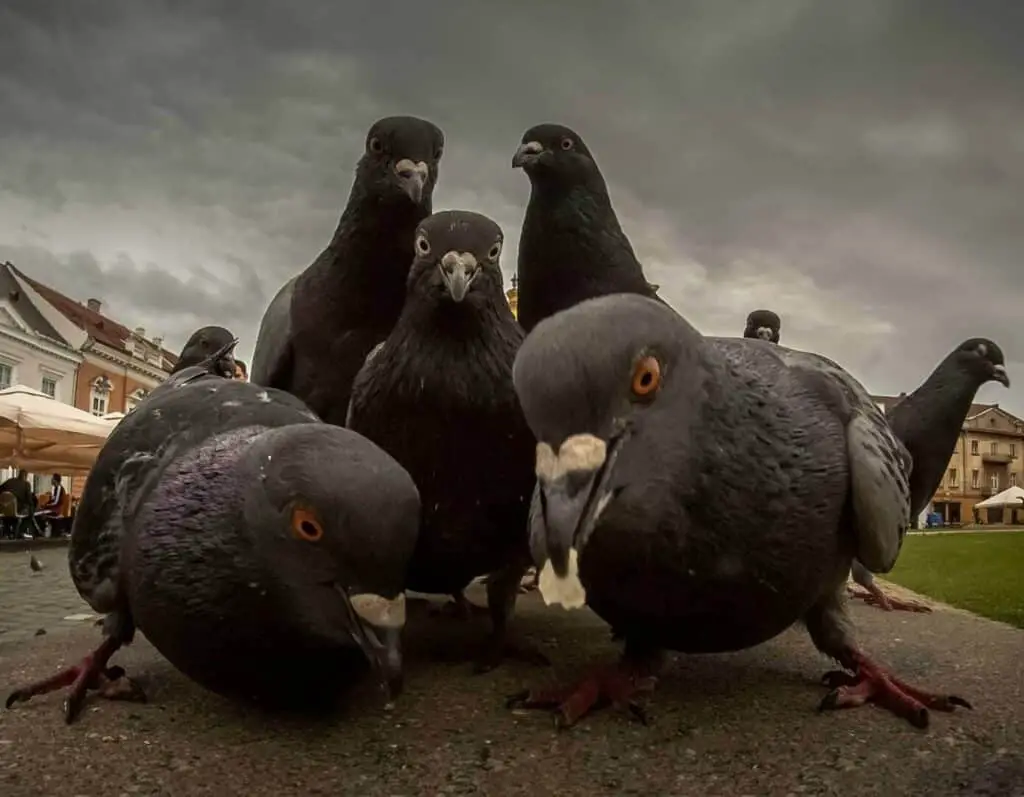
Conclusion
The multifaceted world of pigeon keeping reveals a rich tapestry woven by the diverse motivations that drive individuals to raise and care for these avian companions. From the enthusiast who finds solace in the rhythmic cooing of pigeons on a quiet morning to the competitive racer who witnesses the exhilarating feats of homing pigeons in action, the reasons behind pigeon keeping are as varied as the practitioners themselves. The intricate breeding practices, the excitement of competitions, and the deep-rooted historical and cultural significance of pigeons all contribute to the enduring allure of this age-old practice.
The act of raising pigeons extends beyond personal enjoyment, becoming a communal endeavor that fosters camaraderie among enthusiasts who share a common passion. The exchange of knowledge, the thrill of friendly competition, and the collective appreciation for the beauty and diversity of pigeon breeds create a vibrant and interconnected community. Pigeon keeping, therefore, transcends the simple act of caring for birds; it becomes a shared journey of discovery, celebration, and a testament to the enduring bond between humans and these feathered companions.
The reasons why people raise pigeons are as diverse as the myriad breeds that grace lofts and aviaries worldwide. Whether motivated by a love for nature, the pursuit of excellence in competition, or a desire to preserve cultural traditions, the world of pigeon keeping stands as a testament to the harmonious coexistence of humans and pigeons, a relationship that spans generations and continues to thrive with unwavering enthusiasm and dedication.

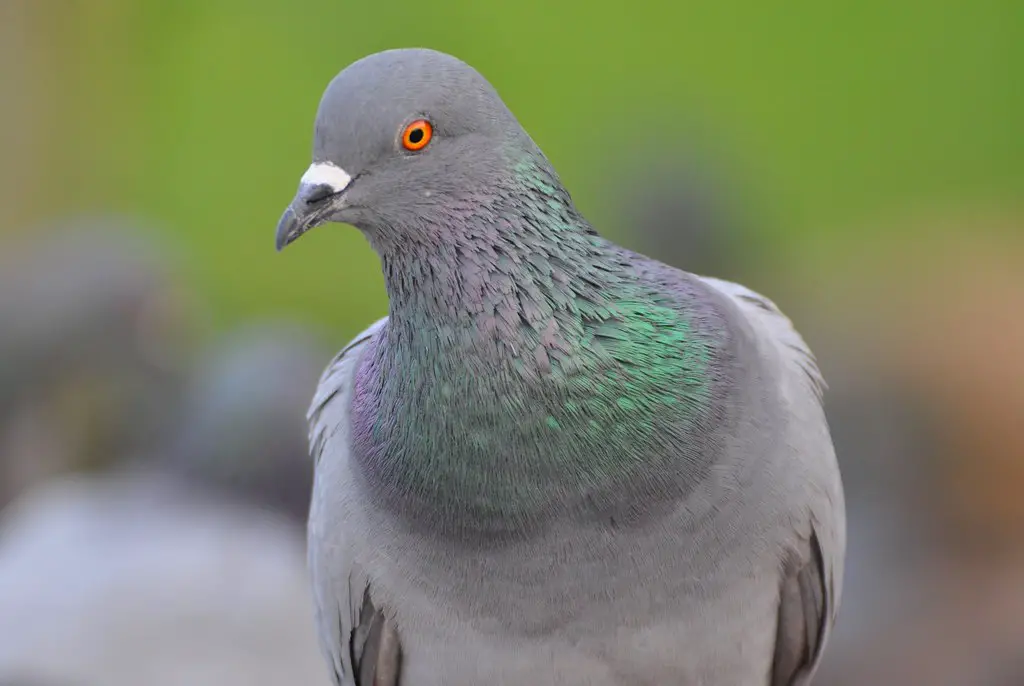
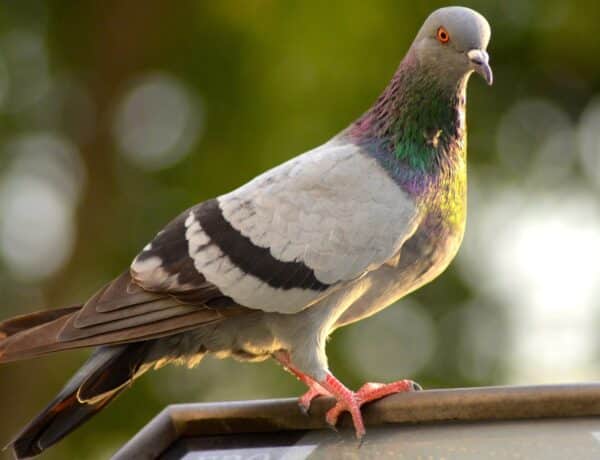
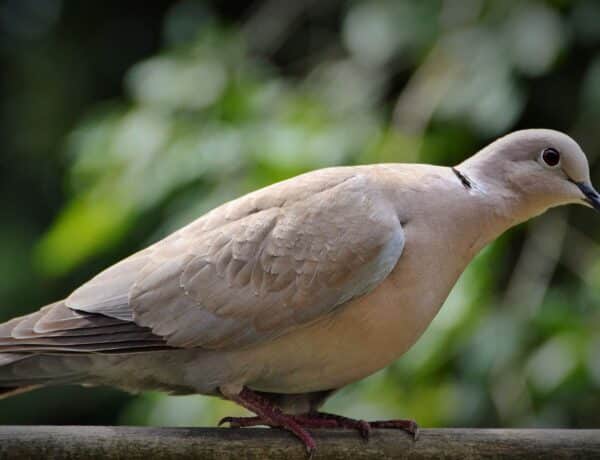
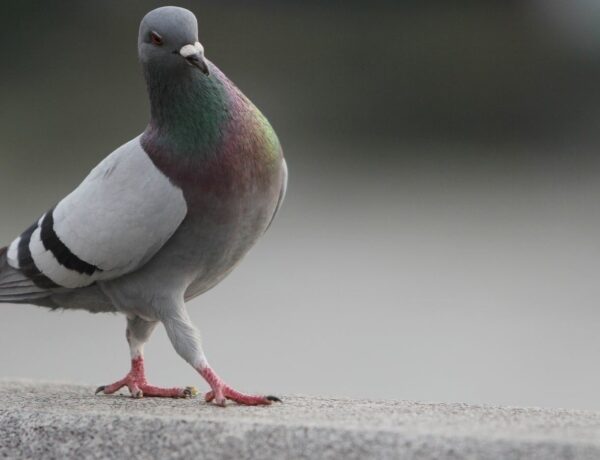
No Comments